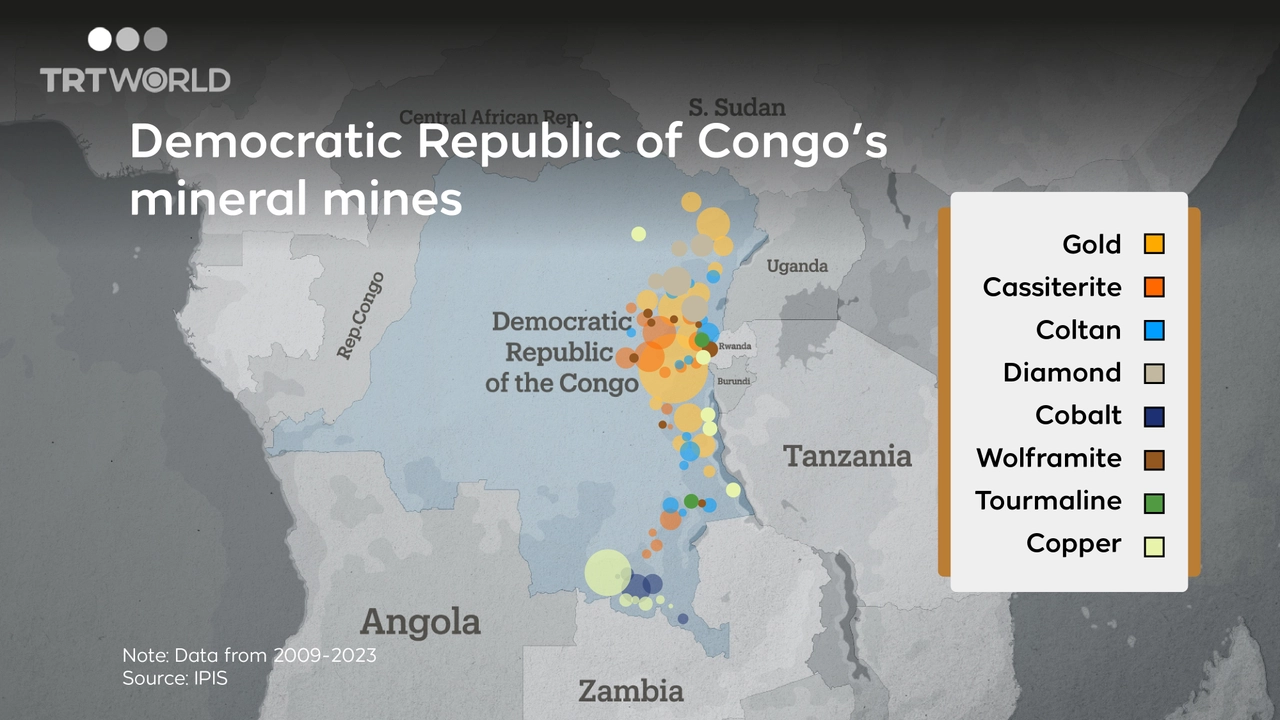Businessman Massad Boulos to Embark on Diplomatic Mission in Africa Amid DRC Crisis.
April 2, 2025

Washington D.C - In a striking departure from traditional diplomatic protocols, Massad Boulos, a prominent Lebanese-American businessman and a close associate of former President Donald Trump, is set to embark on a mission to Africa aimed at addressing the escalating crisis in the Democratic Republic of Congo (DRC). The U.S. State Department confirmed that Boulos, accompanied by senior diplomat Corina Sanders, will depart on Thursday for a multi-nation tour that includes stops in Rwanda, Kenya, Uganda, and the DRC.
This move marks the latest example of a non-traditional diplomatic role being undertaken by someone within Trump’s orbit, with Boulos now wearing multiple hats as both a senior advisor for Africa and an existing senior advisor to the president on Arab and Middle Eastern Affairs.
In a statement, the State Department revealed that Boulos' mission would focus on meeting with heads of state, business leaders, and local stakeholders in order to facilitate "durable peace" in eastern DRC, a region currently ravaged by conflict, and to promote U.S. private sector investment across the broader region. Boulos’ business expertise, coupled with his high-level connections, is expected to play a key role in advancing U.S. interests in the region.
A personal connection to the Trump family adds an additional layer of intrigue to Boulos' appointment: his son, Michael Boulos, is married to Tiffany Trump, former President Trump’s daughter. Despite his familial ties to the former president, Massad Boulos’ involvement in global affairs raises eyebrows, as his background is rooted more in business than diplomacy.
The DRC has been at the epicenter of growing violence, particularly in its mineral-rich eastern provinces, where Rwanda-backed M23 rebels have taken control of vast areas. While Rwanda denies supporting the M23, a United Nations report suggests otherwise, citing evidence of Rwandan military assistance in the region. The humanitarian toll in the DRC continues to rise, with the country facing its worst conflict in decades.
The upcoming diplomatic tour coincides with ongoing international efforts to de-escalate the situation. U.S. officials have tried to broker peace in the region, with President Joe Biden’s administration previously working on a tentative deal in the DRC that ultimately fell through.
The region’s geopolitical dynamics are complex, as Kenya, a reliable U.S. ally, has long collaborated with Washington on various African issues. Uganda, on the other hand, has more complicated relations with both Rwanda and the United States. Although Uganda works closely with the DRC government in the east, it also maintains strategic ties with Rwanda, adding further layers of complexity to the regional diplomatic puzzle.
At the same time, diplomatic talks to address the crisis are heating up. On April 9, the DRC government and the M23 rebels are scheduled to hold their first direct talks, a significant development in the long-standing conflict. This dialogue, taking place in Doha, Qatar, is seen as a critical step toward a ceasefire and potential resolution. A source close to the M23 confirmed the meeting date, adding that they would present their demands to the DRC government during the discussions.
The Qatari government, which has acted as a neutral party in these negotiations, is also keen to help facilitate peace. DRC President Félix Tshisekedi and Rwanda’s President Paul Kagame held an unannounced meeting in Doha last month, signaling a potential breakthrough in the broader regional tensions.
Massad Boulos' mission, though unconventional, underscores a growing trend of non-traditional diplomacy in conflict zones, where business leaders with strong political ties are being enlisted to bridge gaps and spark economic development in post-conflict regions. His trip to Africa will test the efficacy of this new approach, as the DRC, Rwanda, and neighboring countries grapple with one of the most protracted crises in Africa.
As the situation unfolds, all eyes will be on Boulos and his ability to navigate the complex web of political and business interests, and whether his efforts can help bring much-needed stability to the region. With the DRC’s future hanging in the balance, the diplomatic world watches closely.


